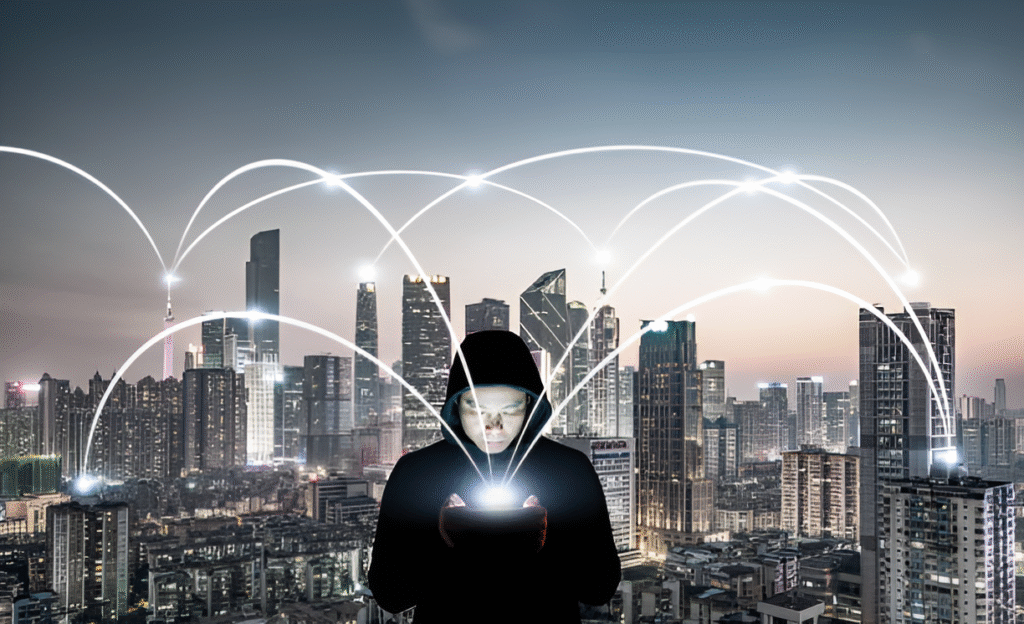Imagine a bustling marketplace where every transaction, negotiation, and trade happens without a central overseer. No towering auction halls, no corporate middlemen, just a web of participants exchanging goods and services peer-to-peer. This is the promise of decentralized marketplaces, a vision fueled by blockchain technology, peer-to-peer networks, and an undercurrent of liberating trust issues from corporate control.
But beneath this idealistic surface hides a critical question—how secure are these marketplaces, really? Can the cryptographic safeguards, distributed networks, and autonomous smart contracts protect users from fraud, hacks, or identity breaches? Or does decentralization carry hidden vulnerabilities that could make users easy targets?
In This Article
How Decentralized Marketplaces Work
Traditional marketplaces rely on centralized authorities to manage listings, payments, dispute resolution, and user verification. In contrast, decentralized marketplaces distribute these roles among multiple participants or run them autonomously through code.
At the core, these platforms use blockchain technology or peer-to-peer (P2P) networks to:
- Store listings and transaction history in a publicly verifiable and immutable ledger.
- Facilitate payments through cryptocurrencies or digital tokens.
- Implement smart contracts—self-executing agreements that automatically enforce the terms of a deal.
- Eliminate single points of control or failure by distributing network responsibilities across nodes.
This structure aims to reduce censorship, increase transparency, and minimize trust requirements between unknown parties.
Security Benefits of Decentralization
Decentralization offers several compelling advantages that can enhance marketplace security:
- Resistance to Censorship and Takedowns: With no central server to seize or shut down, decentralized marketplaces are inherently more resilient against legal or authoritarian shutdowns.
- Reduced Risk of Data Breaches: Since user information isn’t stored in a single database, mass data hacks are more difficult to execute.
- Automated Contract Enforcement: Smart contracts enforce terms like escrow release automatically, reducing human error and fraud.
- Greater User Control: Users often hold their own keys and funds, removing risks of intermediary misappropriation.
These security features can theoretically create a trustless environment where code replaces trust in institutions or mediators.
Common Security Challenges
Despite the promise, decentralized marketplaces face unique and familiar security pitfalls:
Smart Contract Vulnerabilities
Smart contracts execute code automatically. But if that code contains bugs or logical errors, hackers can exploit these flaws to drain funds or manipulate outcomes.
The infamous DAO hack of 2016, which drained $50 million in Ether due to a recursive call vulnerability, offers a cautionary tale.
Sybil and Fake-Identity Attacks
Decentralization often means anonymity, which invites bad actors to create many fake accounts or nodes (known as Sybil attacks) to sway reputation systems or flood the network with malicious activity.
Liquidity and Escrow Risks
While smart contracts can hold funds in escrow during transactions, poorly designed or hacked escrow mechanisms have been exploited, leaving users unable to retrieve their assets.
Privacy Concerns
In decentralized marketplaces based on public blockchains, transaction details are public forever. Linking these on-chain transactions to real-world identities (through blockchain forensics) can erode privacy.
Network Attacks and DDoS
Peer-to-peer networks can be vulnerable to network-level attacks like Distributed Denial of Service (DDoS), which can degrade performance or isolate nodes.
Human Factors
Ultimately, users’ security depends on protecting their private keys, using secure wallets, and practicing good operational security. A single compromised private key can lead to total loss.
Not all decentralized marketplaces are created equal. Some projects rush development or neglect thorough code audits, leaving users exposed to critical security risks.
Real-World Examples in Action
Let’s explore some decentralized marketplaces and the security lessons they offer.
OpenBazaar
OpenBazaar is a peer-to-peer marketplace without fees or intermediaries, relying on cryptographic escrow and consensus mechanisms. While innovative, user adoption was limited partially due to usability and security concerns.
In 2020, OpenBazaar’s development was discontinued, highlighting the challenges of maintaining secure, decentralized infrastructure long-term. The lack of centralized customer support also became a frustration for users dealing with disputes or scams.
Ethereum-Based Marketplaces
Platforms like Origin Protocol leverage Ethereum smart contracts for decentralized e-commerce and services. Their security depends heavily on the underlying smart contracts and the Ethereum blockchain’s integrity.
However, these marketplaces remain susceptible to network congestion, high transaction fees (gas), and smart contract flaws.
Decentralized Finance (DeFi) Marketplaces
Certain DeFi projects offer peer-to-peer asset swaps, lending, and auctions. While technically decentralized, some have seen significant hacks due to flawed code or oracle manipulation.
These examples emphasize the need for robust audited smart contracts and continuous security reviews.
Best Practices for Users
To improve personal security on decentralized marketplaces, follow these foundational tips:
- Use wallets with strong encryption and secure private key storage. Hardware wallets offer an extra layer of safety.
- Verify marketplace smart contracts have been audited by reputable firms.
- Practice careful operational security—avoid linking your real-world identity.
- Regularly update software and be wary of phishing attempts or fake DApps.
- Diversify funds across multiple wallets to limit exposure.
- Use anonymization tools like Tor or VPNs to obscure IP addresses during transactions.
For those exploring marketplaces on Tor or other anonymity networks, understanding common risks and defenses is crucial. Our how to stay anonymous on the darknet guide offers practical advice on layered security and privacy.
The Future of Security in Decentralized Marketplaces
Security in decentralized marketplaces continues to evolve alongside blockchain innovation.
- Multi-Signature Wallets and Escrow Improvements: Increasingly, escrow systems require multiple approvals (multi-signature wallets) to reduce fraud. This approach spreads trust among several parties.
- Zero-Knowledge Proofs: These cryptographic techniques allow verification of data without revealing the data itself, promising greater privacy for transactions.
- Decentralized Identity Solutions: Emerging frameworks aim to enable verifiable credentials without compromising user anonymity.
- AI-Driven Security Audits: Automated tools scanning smart contracts for vulnerabilities will become standard to prevent exploitable bugs.
- Hybrid Models: Some marketplaces may blend decentralization with centralized support to balance security and usability.
Security will remain a continuous arms race—new vulnerabilities will surface as attackers evolve. Users and developers alike must stay informed and adaptive.
FAQ
Q: Can decentralized marketplaces be hacked?
A: Yes. While decentralization reduces some risks, it introduces others like vulnerable smart contracts or network attacks. No system is invulnerable.
Q: How does a decentralized marketplace protect my privacy?
A: By eliminating centralized data storage and offering pseudonymous transactions on blockchains, they limit large-scale data exposure. But blockchain transparency means transaction metadata is public unless privacy-enhancing techniques are used.
Q: What role do smart contracts play in security?
A: Smart contracts automate transaction rules to reduce fraud but must be carefully coded and audited to avoid exploits.
Q: Are decentralized marketplaces legal?
A: Their legality depends on jurisdiction and the nature of goods or services traded. Because they operate without central control, enforcement is complex.
Decentralized marketplaces are a glimpse into a future where trust, privacy, and ownership live on the edges — outside traditional institutions. Their security is a mix of cryptography, network design, and informed human choices. Like any evolving tool, they require vigilance and educated use to unlock their full potential safely.


